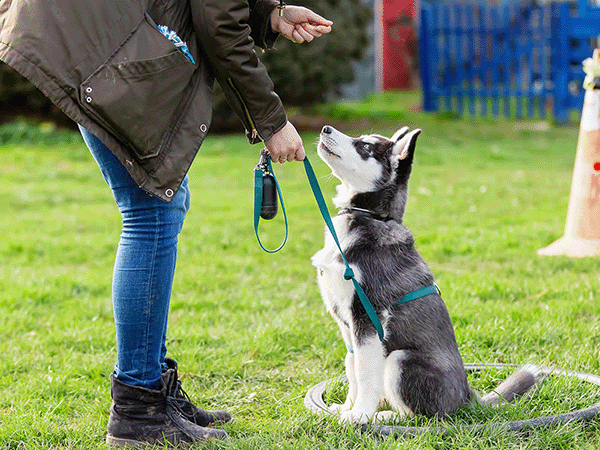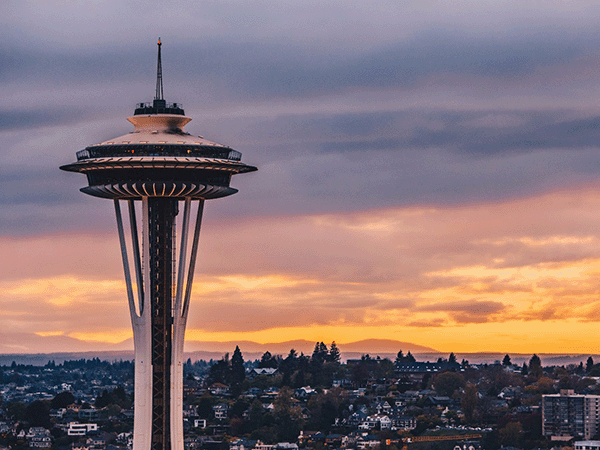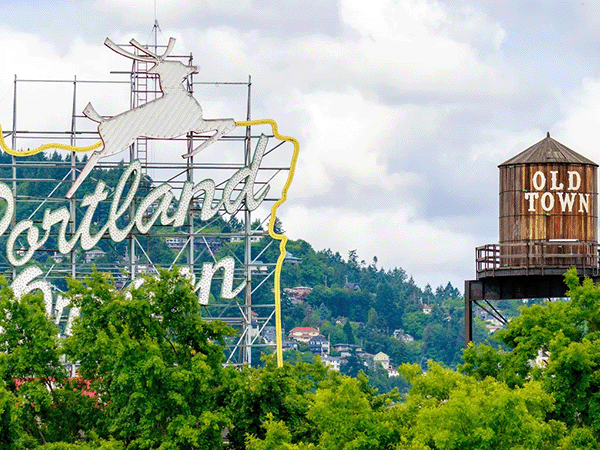Essential Husky Facts for Owners: Breed Guide

Discover the Siberian Husky, a breed celebrated for its curious, intelligent, and loyal nature. Considered a medium-sized dog, Siberian Huskies were originally bred in Russia for sledding, beginning in the early 20th Century. Today, they're one of the most popular active breeds in North America.
In this post, we share insights from almost 10,000 Sniffspot users, offering practical advice for new and prospective Siberian Husky owners. Whether you’re considering owning or rescuing a Siberian Husky yourself or already have one, you'll find valuable tips on how to care for and enjoy life with a curious, active breed like the Siberian Husky.
As Sniffspot user Briana says, "He's very in tune with the emotional needs of his owners."

Source: Sniffspot Community Breed Survey 2024
Siberian Husky Quick Characteristics
- Breed Type: Working
- Size: Medium
- Life Expectancy: 12 - 15 years
- Healthy Weight Range: 35 to 60 lbs
- Height Range: 19 - 23 in
- Temperament: Curious, Intelligent, Intelligent
- Coat Type: Double
- Color: Black, gray, red, sable, and agouti, with white markings
About the Siberian Husky
According to almost 10,000 Sniffspot community users who shared real-world data about their Siberian Husky, we learned these dogs are curious and intelligent. The Siberian Husky is very friendly and social with children and very friendly with other pets.
When living with a Husky, 83% of owners said a large house with a fenced yard is the most ideal living situation they need regular physical exercise. Additionally, 35% of owners said a rural or suburban area with open spaces is also acceptable. This dog is moderately trainable, often benefiting from a professional trainer, and owners say the Siberian Husky learns best with positive reinforcement, consistent routines, physical exercise, and training aids.
When it comes to exercise, 48% of Sniffspot owners say their Siberian Husky benefits from moderate exercise every day, including between 1-2 hours of activity each day, including walks and active play sessions. The Sniffspot Husky community would not recommend this dog to first-time owners.
History and Origin of Siberian Huskies
The Siberian Husky, with a Northern heritage and lineage possibly spanning over 4,000 years, is a distinct breed and not a wolf or wolf hybrid. Originating with the Chukchi tribe in northern Siberia, the Husky served as an all-purpose companion, working alongside and living with the tribe with their durable outer coat. In 1909, Huskies were introduced to Alaska for sled dog racing, quickly establishing their reputation by finishing third in the All-Alaska Sweepstakes.
The breed gained national fame during the 1925 diphtheria epidemic in Nome, Alaska, when a relay of Huskies transported life-saving serum, highlighting their remarkable endurance and reliability. Leonhard Seppala, a key driver of this serum run, later brought his Huskies to the U.S. for a tour, where their performance in races further solidified their status. This led to the breed's recognition by the AKC in 1930 and the establishment of the Siberian Husky Club of America in 1938.
Nowadays, the Siberian Husky Club of America continues to promote the joys of this breed. Though they need regular exercise and a lot of physical activity, their body condition makes them an ideal cold-weather breed for harsh climates. As a companion dog breed, the American Kennel Club and the Siberian Husky Club both rate this pet highly.
The Husky is also a popular mascot amongst athletic teams, and you'll even see this pup on the big screen. Part of popular series like Game of Thrones, as well as real-world rescue teams like the Artic Search & Rescue Unit, these sled team performers make compelling animal actors and companions. As a cold-weather breed, Husky pups are easily recognizable.
Siberian Husky Traits and Characteristics
- Temperament: Curious, Intelligent, Loyal
- Energy Level: Moderate
- Trainability: Moderately trainable - Learns commands with consistent training and practice.
- Grooming needs: Moderate maintenance - Needs regular brushing and periodic baths.
- Good with Kids: Very friendly and social with children
- Good with Other Pets: Very friendly with other pets
What to Expect as a Siberian Husky Dog Owner
As a Siberian Husky owner, it's important to know the best dog breed tips as well as expectations from current Siberian Husky owners.

Source: Sniffspot Community Breed Research 2024
Grooming Needs
Siberian Husky dogs require moderate maintenance grooming. This means Siberian Husky owners should expect regular brushing and periodic baths. Siberian Husky dogs have a double coat, ideal for insulation from the cold. Their double coat is considered high shed.
To keep your Siberian Husky's coat healthy and up to breed standards, include brushing in their daily routine to manage shedding. Of the coat types for common breeds in the working group, the coat grooming needs for Siberian Husky are moderate maintenance.
Exercise Needs
Siberian Huskies require moderate activity each day. Though one of the most popular dog breeds, Huskies are considered a very athletic, high-energy breed. Huskies make great pets, and they thrive with between 1-2 hours of activity each day, including walks and active play sessions.
Owners of Huskies report their dogs especially love running/jogging, playing with squeaky toys, and hiking. When medium breeds like Huskies don't get sufficient exercise, they're more likely to act out on undesirable behaviors. They need consistent training, mental activity, and regular moderate exercise to avoid excess energy.
Diet and Nutrition
What should you feed your Siberian Husky to keep him healthy? As a Moderate energy breed, what you feed them is important. A reported 64% of our community feed their Husky commercial dry kibble.
With moderate exercise, Huskies should eat 2.5 to 3.5 cups of vet-recommended food to maintain a healthy weight of around 35 to 60 lbs. However, your Siberian Husky's ideal weight and food depend on your pet's sex, activity level, and age.
Breed Health Concerns
The Siberian Husky breed is most prone to digestive issues (e.g., bloating, sensitive stomach) and skin conditions (e.g., allergies, dermatitis). A reported 37% of our Siberian Husky owners reported digestive issues like constipation, diarrhea, vomiting, and lack of appetite. Husky's risk for these challenges increase as they age.
Similarly, 26% reported skin conditions like allergies, yeast infections, impetigo, ringworm, alopecia, and folliculitis. Lastly, 24% of Siberian Husky owners claim their dog struggles with joint problems like arthritis, elbow dysplasia, degenerative issues, and osteosarcoma — a common Husky health concern. If you're worried about any of these health issues above, talk to your Husky's vet.
How Friendly Are Siberian Huskies?
Another important thing to consider when adopting a Husky is whether or not they fit with your current family. How friendly are Siberian Huskies compared to other medium-sized breeds?

Source: Sniffspot Community Breed Survey 2024
With moderate training, you can hone your Husky's protective and working instinct into a beloved family dog. Introducing your pet to positive reinforcement (treats, praise, rewards) and consistent daily training routines early helps them avoid undesirable behaviors like developing escape artist tendencies or anxiety.
Our community Siberian Husky owners comment on their pet's friendliness:
- "Very smart and friendly with other dogs and people. Down for whatever as long as they can tag along. Doesn't bark at door or strangers. Will talk to me and others about his needs." (Gill)
- "He is so sweet and goofy. He is great around other dogs and people." (LW)
How to Train a Siberian Husky
Whether you are adopting a Husky puppy or a grown Siberian Husky adult, training is a large part of owning a medium breed. When you fail to train your Husky properly, they're more likely to display undesirable behaviors like escape artist tendencies, and so on. Providing stimulating activities is a great first step, but this needs to be paired with the right training for your Husky.
As a working breed, Siberian Huskies benefit from praise and positive reinforcement. Here's what our Husky community recommended based on their experience with their own dog:
- Positive Reinforcement (94%): This includes treats, praise, rewards, and so on for positive behavior.
- Consistent Routines (59%): A consistent training routine allows your pet to get comfortable with expectations.
- Training Aids (46%): Dog training aids like martingale collars, walking harnesses, and no-pull attachments.
As dogs bred for sledding, Huskies are considered moderately trainable, often benefiting from a professional trainer.
What Do Owners Love About Siberian Huskies?
We asked Sniffspot Husky owners what they love the most about their Siberian Husky pups, and here's what they had to say:
- "Huskies are incredibly loving and loyal. They are great with other people and children." (Janelle)
- "Gracie is a husky and shepherd mix, she is extremely affectionate, playful and fun." (Kim)
- "They make you earn their love. So when a husky loves you, you know it is true." (Apryl)
What Are the Biggest Challenges for Siberian Husky Owners?
Similarly, Husky owners shared some of the biggest challenges of living with Siberian Husky:
- "Energy and intelligence. Lots of physical and mental stimulation required" (T)
- "Providing different exercise/athletic outlets without a fenced-in yard." (Briana)
- "Hair and their independence. They don’t need to listen to you. They question everything you say to them. Like “why do I have to sit? You're standing with no treat?” (Kennedy)
Is a Siberian Husky Right for a First-Time Dog Owner?

Source: Sniffspot 2024 Community Dog Breed Survey
According to 84% of our Sniffspot community, Siberian Huskies are not a great first-time dog. This comes from their curious nature and moderate exercise needs. Siberian Husky owners say it best:
- "Read up and understand the breed. They will love you one minute and be clingy lapdogs and the next they want their independence and to be left alone. Have challenging games for them to keep busy, never think they are just laying around, they are most likely getting into something." (Donna)
- "Talk to owners who have had this breed for years, read out, talk to the rescue/shelter (not breeder as they will lie), vets, etc. Learn as much as you can about the breed and ask yourself, 'Does this fit in my life?'" (Leanne)
Advice for Siberian Husky Owners
Luckily, our Sniffspot community is full of experienced, trustworthy Husky owners. These Siberian Husky breed owners share the most essential dog breed tips and advice for prospective or new dog owners:
Familiarize yourself with Husky vocalizations.
- "It's cute that huskies will talk with you but sometimes it gets annoying." (Loki)
- "They require a lot of exercise to keep them happy to stay at home..they can have high prey drives. They talk back so be prepared." (Meridia)
Consider having more than one dog.
- "Must be able to play and stay active with dog -- a dog mate helps. We have 3 huskies." (Liz)
- "Huskies are meant to be in a pack. You are part of the pack!" (Anon)
Prepare for a lot of training.
- "Be prepared for a lot of work, training, and exercise. Huskies are amazing, but if you're not up to it, please don't get one." (Anas)
- "Look into training and socialization early on. Would be a great breed to consider enrolling in regular training or sports." (Aloma)
 photo nic on Unsplash
photo nic on Unsplash
Frequently Asked Questions about the Siberian Husky
What is the average lifespan of a Siberian Husky?
The average lifespan of a Siberian Husky is typically between 12 - 15 years.
What is the size of a Siberian Husky?
An adult Siberian Husky weighs between 35 to 60 lbs pounds and stands between 19 - 23 in tall.
How much grooming does a Siberian Husky need?
Siberian Husky dogs require moderate maintenance grooming. Regular grooming helps to keep their coat healthy and manageable. Siberian Husky dogs have a double coat, which is well-suited for insulation from the cold. They are considered high shedders.
To maintain your Siberian Husky's coat, it's important to brush them regularly to manage shedding. Among working breeds, Siberian Husky grooming is categorized as expected.
How much exercise does a Siberian Husky need?
Siberian Huskies require moderate activity each day. Though one of the most popular dog breeds, Huskies are classified as a moderately athletic, somewhat high-energy breed.
Huskies are excellent companions and flourish with between 1-2 hours of activity each day, including walks and active play sessions. Owners of Huskies note that their dogs particularly enjoy running/jogging, playing with squeaky toys, and hiking.
If medium breeds like Huskies don't receive enough exercise, they may develop unwanted behaviors. These dogs need ongoing training, mental stimulation, and consistent exercise to channel their energy effectively.
How friendly are Siberian Huskies with children?
According to our data, Siberian Huskies are very friendly and social with children.
How well do Siberian Huskies get along with other pets?
Our research indicates that Siberian Huskies are very friendly with other pets with other pets.
What should you feed your Siberian Husky to keep him healthy?
As a moderate energy breed, the diet of your Husky is crucial. A significant 64% of our community feed their Husky commercial dry kibble.
For optimal health, Huskies should consume 2.5 to 3.5 cups of vet-recommended food to maintain a healthy weight around 35 to 60 lbs pounds. The exact amount and type of food will depend on your Siberian Husky's sex, activity level, and age.
What health concerns are common for Siberian Huskies?
The Siberian Husky breed is particularly prone to digestive issues like constipation, diarrhea, vomiting, and lack of appetite and skin conditions like allergies, yeast infections, impetigo, ringworm, alopecia, and folliculitis. Our data shows that 37% of Siberian Husky owners reported digestive issues like constipation, diarrhea, vomiting, and lack of appetite. Husky's risk for these health issues increases as they age.
Additionally, 26% reported skin conditions like allergies, yeast infections, impetigo, ringworm, alopecia, and folliculitis. Finally, 24% of Siberian Husky owners indicated their dog struggles with joint problems like arthritis, elbow dysplasia, degenerative issues, and osteosarcoma, which are common Husky health concerns. If you have concerns about any of these health issues, consult your Husky's veterinarian.
Resources for Siberian Husky Owners
Whether you're a current Siberian Husky dog owner or you're considering adopting a Husky, Sniffspot is here to lend a helping hand. Here are some of the most relevant resources for Siberian Husky owners.
- Most Popular Siberian Husky Dog Names
- Best Husky Dog Rescues and Shelters
- Hope for Huskies Rescue
- Free Spirit Siberian Rescue
Sources:
Most recent articles
Related articles
Top dog guides per area
Dog training guides

Dog Food Aggression: Why You Shouldn't Punish It
Does your dog ever growl when you walk by their food dish? Maybe they get possessive of treats, carrying them far away and giving you side-eye when you start to approach — or snarling at your other pets or children if they get too close.

Best Dog Fields in the US: 25+ Wide-Open Spaces for Your Pup to Run Free
The best dog fields in the US offer something that traditional enclosed parks simply can't match: acres of open space where your pup can truly stretch their legs and run at full speed. From Colorado's 470-acre prairie meadows to Tennessee's award-winning "Outback," these wide-open spaces allow dogs to roam, explore, and exercise naturally while engaging instincts that cramped urban parks suppress.

The Ultimate Guide to Scent Training for Dogs
Your dog's nose is an amazing tool. Did you know they have 40 times the olfactory receptors than humans? Scent training for dogs taps into this superpower, turning everyday moments into exciting sniff-fests. It's enriching for all types of dogs – reactive, shy, or simply adventurous. Ready to explore the world of scent work for dogs? Let's get started.

Service Dog Training Costs: DIY vs. Pro
More than 80 million Americans rely on their service dogs to help them navigate the world. Task-trained assistance animals perform a huge range of life-changing—in many cases, life-saving—services: These dogs act as eyes for visually impaired handlers, provide mobility support, alert to seizures and blood sugar crashes, interrupt anxiety attacks, remind their people to take medications, and so much more.

How to Deal With Puppy Potty Training Regression
You thought those dreaded middle-of-the-night potty breaks were over. You were finally free from cleaning up puppy puddles. Then, suddenly, your furry friend starts having accidents again. It's frustrating, right? This puppy potty training regression is more common than you think. Don't worry; we'll help you get your pup back on track. We'll cover the common causes, offer practical solutions, and give you actionable steps to tackle this challenge together.

Dirty Dog Syndrome: Causes, Solutions, and Prevention
It's a cringe-worthy moment every dog owner dreads: your furry friend chowing down on something truly disgusting. If your dog has a penchant for poop, you're dealing with coprophagia. It's more common than you think, and thankfully, often manageable. This article explores the reasons behind dirty dog syndrome, from instinct to learned behavior. We'll also give you practical tips to help break this unpleasant habit.

How to Train Your Rescue Dog: A Complete Guide
* All Sniffspot articles are reviewed by certified trainers for quality, please see bottom of article for details *
Dog enrichment guides

Best Dog Water Parks in the US: 15+ Amazing Splash Destinations for Your Pup
Do you have a water-loving dog looking to burn some energy? There are countless dog parks to visit throughout our country — but some of them become far too hot in the midday sun to be safe for your pets to play. That’s why we’ve put together a list of some of the best dog water parks throughout the United States! At these locations, your pup can frolic, splash, and swim to their heart’s content.

Best Dog Fields in the US: 25+ Wide-Open Spaces for Your Pup to Run Free
The best dog fields in the US offer something that traditional enclosed parks simply can't match: acres of open space where your pup can truly stretch their legs and run at full speed. From Colorado's 470-acre prairie meadows to Tennessee's award-winning "Outback," these wide-open spaces allow dogs to roam, explore, and exercise naturally while engaging instincts that cramped urban parks suppress.

Best Toys for Herding Dogs: Keeping Your Pup Happy & Engaged
Herding dogs are amazing, intelligent companions. But that also means they need more than just a simple game of fetch. Finding the right toys for herding dogs is key to keeping them happy and stimulated. This article explores some of the best toys for herding dogs, including options specifically for breeds like Border Collies and Australian Shepherds. We'll help you discover the perfect herding toys for dogs to tap into their natural instincts and keep them entertained for hours.

Tough Dog Toys for Aggressive Chewers: A Practical Guide
Does your dog destroy every toy you give them? Is your house littered with the remnants of plush toys? Are you tired of wasting money on "indestructible" dog toys for aggressive chewers that don't last? Then this post is for you. We'll cover everything you need to know about finding the best dog toys for aggressive chewers, so you can finally give your pup something safe, durable, and fun.

Daily Exercise Calculator: How Much Exercise Does Your Dog Need?
Everyone knows dogs need exercise, but how much is enough? Walks are great, but creating a truly balanced fitness plan means understanding your dog's specific needs. This post helps you develop a daily exercise calculator for your dog, considering breed, age, and lifestyle. We'll cover fun activities, understanding exercise intensity, and recognizing when your pup has had enough. Let's create a plan that keeps your dog happy and healthy!

Complete Guide To Herding With Dogs
* All Sniffspot articles are reviewed by certified trainers for quality, please see bottom of article for details *

Dog Enrichment Activities: The Ultimate Guide
Ever feel like your dog is restless or bored? They may be getting enough exercise, but still need more. That's where enrichment activities for dogs come in. Giving your dog opportunities to sniff, explore, and problem-solve can make a world of difference. Whether you have a puppy, adult, or senior dog, enriching their environment is key for their well-being. Let's explore how to add cognitive enrichment for dogs, even tailoring activities to your dog's breed with breed specific enrichment and fun enrichment games for dogs.
Dog reactivity guides

Rottweiler Aggression: Truth vs. Myth
Many dogs have gotten a bad reputation over the years for being "dangerous breeds." Rottweilers are among them. Like pit bulls and other large, blocky-headed types of dogs, these powerful and beautiful animals are often assumed to be aggressive.

Best Dog Fields in the US: 25+ Wide-Open Spaces for Your Pup to Run Free
The best dog fields in the US offer something that traditional enclosed parks simply can't match: acres of open space where your pup can truly stretch their legs and run at full speed. From Colorado's 470-acre prairie meadows to Tennessee's award-winning "Outback," these wide-open spaces allow dogs to roam, explore, and exercise naturally while engaging instincts that cramped urban parks suppress.

What Is a Reactive Dog? A Practical Guide for Owners
Does your dog suddenly transform into a barking, lunging Tasmanian devil on walks? It's stressful for both of you. If this sounds familiar, you might have a reactive dog. Understanding what is a reactive dog is the first step to calmer walks. We'll explore the common triggers and give you actionable strategies to manage and modify this behavior. Let's turn those stressful walks into enjoyable outings.

How to Socialize a Reactive Dog: A Step-by-Step Guide
Does your dog display reactivity to other pets or people? Maybe they’re a new rescue pup and are still settling into your home. Or they were sick growing up, so you missed their critical socialization period. Possibly they’ve had a bad experience after being raised as a normal puppy.

What Is a Reactive Dog? A Complete Guide
Is your dog overly excited or fearful around other dogs? Do they bark, lunge, or whine? You might have a reactive dog. Many dog owners face this challenge. Understanding what a reactive dog is is the first step to helping them. This guide explores the common causes of dog reactivity, explains what makes a dog reactive, and offers practical tips and resources. Let's work together to build a stronger bond with your dog and enjoy stress-free walks.

9 Best Online Communities for Reactive Dog Parents
Does your dog's reactivity make walks stressful? You're not alone. Many dog owners face similar challenges. This guide offers practical advice and support for managing reactivity, including finding the best online dog training for reactive dogs. We'll connect you with reactive dog support groups, share training tips, and explore resources like the best dog training app for reactive dogs. Let's build a stronger bond with your dog, together.
* All Sniffspot articles are reviewed by certified trainers for quality, please see bottom of article for details *
How To Groom a Reactive Dog
* All Sniffspot articles are reviewed by certified trainers for quality, please see bottom of article for details *
Sniffspot community guides

The State of Public Dog Parks Across the United States
From 2009 to 2020, there was a 40 percent increase in the development of public dog parks. Designated spots for canine exercise have become commonplace in every major city in North America — many pet owners won’t even consider renting an apartment that doesn’t have its own fenced-in pet area for their canine companions.

Best Dog Fields in the US: 25+ Wide-Open Spaces for Your Pup to Run Free
The best dog fields in the US offer something that traditional enclosed parks simply can't match: acres of open space where your pup can truly stretch their legs and run at full speed. From Colorado's 470-acre prairie meadows to Tennessee's award-winning "Outback," these wide-open spaces allow dogs to roam, explore, and exercise naturally while engaging instincts that cramped urban parks suppress.

How This Family is Affording Their Dream Property Through Renting it Hourly to Dogs
Thousand Oaks, California has been a safe haven for Sniffspot host, Jen, since childhood. Having grown up in busy Santa Barbara, Jen, an introvert from an early age, would seek out solitude and serenity away from tourists attractions and droves of people visiting from elsewhere. “My grandparents own 60 acres about a 30 minute drive from here, and I grew up spending every summer and every holiday visiting them on the ranch,” Jen explained. “In Santa Barbara, we wouldn't go to the beach on the weekend because that's where everybody was, so you'd find places off the beaten path where the tourists weren't. For me, the ranch was just my happy place.”

Host Tips: Ellen K. What Makes Sniffspot Successful for Me
Ellen is the host of Country Pasture Getaway, one of Sniffspot's most popular sniff spots. She has taken the time to write up the lessons she has learned about how to be a great sniff spot host.

How this Oregon Farmer is Making a Business From Renting Her Land to Dogs
Just 20 minutes outside of the busy city of Portland, Oregon, and settled right on the banks of the Columbia River, you’ll find what countless visitors have flocked to the area in search of – mountain views, crisp, clean air, and running water for miles. What you might not expect to find, however, is a hidden oasis designed just for dogs and their people, owned and operated by a farming couple and enjoyed by visitors on two legs, and four.

Host Tips: Fran T. Providing Great Guest Service at our Spot
Fran is the host of Ranch Setting, one of Sniffspot's most popular spots. She has taken the time to write up the lessons she has learned about how to be a great Sniffspot host.

How Sniffspot Helped a Nervous Rescue Work Through His Fears and Change His Family’s Life
This is the story of a family and dog rescuing each other.
Top dog trainers in the US

The Best Dog Trainers in the United States of 2025
This is a list of the top dog trainers in the United States, based on votes from the Sniffspot community and the general public.
The Best Dog Trainers in Seattle, WA of 2025
This is a list of the top dog trainers in Seattle, WA, based on votes from the Sniffspot community and the general public.
The Best Dog Trainers in Portland, OR of 2025
This is a list of the top dog trainers in Portland, OR, based on votes from the Sniffspot community and the general public.
The Best Dog Trainers in Los Angeles, CA of 2025
This is a list of the top dog trainers in Los Angeles, CA, based on votes from the Sniffspot community and the general public.
The Best Dog Trainers in New York, NY of 2025
This is a list of the top dog trainers in New York, NY, based on votes from the Sniffspot community and the general public.
City dog parks guides

Top 10 Indoor Dog Parks: A US Guide
Looking for a space to play with your dog no matter what the weather’s like outside? Look no further than our list of the best indoor dog parks in the United States! These climate-controlled spaces are growing in popularity as pet ownership increases throughout the country. As a bonus, many of them also offer dog training, boarding, grooming, or daycare services on the premises.

Best Dog Fields in the US: 25+ Wide-Open Spaces for Your Pup to Run Free
The best dog fields in the US offer something that traditional enclosed parks simply can't match: acres of open space where your pup can truly stretch their legs and run at full speed. From Colorado's 470-acre prairie meadows to Tennessee's award-winning "Outback," these wide-open spaces allow dogs to roam, explore, and exercise naturally while engaging instincts that cramped urban parks suppress.

Best Dog Parks in the US: Ultimate Guide to Public & Private Off-Leash Adventures
Is your pup giving you those pleading "let me run free" eyes? Whether you're a new dog parent or a seasoned pro looking for fresh adventures, finding the perfect off-leash paradise for your furry friend can feel ruff! From sun-soaked California beaches where your water-loving lab can make a splash to mountain trails in Vermont where your adventure buddy can chase every scent, we've sniffed out the 15 best dog parks across America.

Dog Parks Near Me: Las Vegas Edition
Looking for the perfect dog park near me in Las Vegas? You're in luck! This guide explores all the best options for your pup, from public dog parks to private dog parks near me on Sniffspot. We'll help you find the ideal spot for playtime, socializing, and fresh air. Plus, we'll cover essential etiquette and safety tips to ensure a happy visit for everyone. Get ready for some tail-wagging fun!

Top Sniffspot Locations: Find the Perfect Dog Park
Looking for the perfect dog park? Whether you need a wide-open public space or a private, fenced-in spot, this guide will help you find the best dog parks across the US. We'll cover top-rated public parks, the perks of private dog parks, and even explore Sniffspot locations – giving your pup a safe and fun place to play. Ready to find your dog's new favorite spot? Let's go!

Sniffspot: Portland's Best Private Dog Parks
Ready to discover Portland's best dog parks? Whether you're looking for a public park or the unique experience of a private Sniffspot, this guide has you covered. We'll help you find the perfect spot for your pup, with tips on what to bring, how to prepare, and even understanding dog body language. Plus, we'll explore some top Portland dog parks, including public and Sniffspot options, so you can plan your next dog-friendly adventure in the City of Roses.
Portland Dog Parks: Public & Private Options
This page is about public city dog parks and also includes Sniffspot private dog parks. Sniffspot is the largest network of private dog parks for rent in the world!
Small Dog Park Guide: Tips for Finding the Perfect Spot
Finding the perfect dog park for your small breed can be ruff! Big dog parks can be overwhelming, even dangerous, for little pups. This comprehensive guide helps you sniff out the best small dog parks for your pint-sized companion, covering everything from essential safety checklists to top recommendations for small dog parks across the US—including both public spots and private dog parks.
Dogs breeds

German Shepherd Dogs: Insights From Real Dog Owners
The German Shepherd Dog (GSDs) are known for their intelligence, loyalty, and striking appearance. They're also incredibly versatile, excelling as working dogs and devoted family companions. This guide covers everything you need to know about GSDs, from understanding their unique traits and rich history to practical advice on training and care. So, whether you're a seasoned GSD owner or just starting your research, let's explore this remarkable breed together.

Best Dog Fields in the US: 25+ Wide-Open Spaces for Your Pup to Run Free
The best dog fields in the US offer something that traditional enclosed parks simply can't match: acres of open space where your pup can truly stretch their legs and run at full speed. From Colorado's 470-acre prairie meadows to Tennessee's award-winning "Outback," these wide-open spaces allow dogs to roam, explore, and exercise naturally while engaging instincts that cramped urban parks suppress.

Labrador Retriever: Ultimate Guide by Owners
Discover the Labrador Retriever, a breed celebrated for its playful nature, affectionate temperament, and trainability. Labradors are known for their friendly demeanor and adaptability, making them perfect family companions and versatile working dogs. As one of the most popular types of retrievers, Labs are ideal companions for various lifestyles and are recognized by the American Kennel Club (AKC) as an excellent breed for families.

Golden Retriever Advice: The Complete Owner's Guide
Golden Retrievers: they're gorgeous, playful, and incredibly popular. But before you welcome one into your home, you need the right golden retriever advice. This guide draws on the wisdom of nearly 10,000 Golden Retriever owners, offering practical tips for caring for these affectionate dogs. From understanding their high energy levels to mastering grooming and training, we'll cover everything you need to know. So whether you're already a devoted Golden parent or just starting your research, get ready to learn how to give your furry friend the best possible care.

American Staffordshire Terrier: Your Complete Guide
Think American Staffordshire Terriers are tough? Think again. While their muscular build might intimidate some, these dogs are known for their playful and loyal personalities. This guide draws on the experience of nearly 10,000 AmStaff owners to reveal the truth about this often misunderstood breed. Want to learn more about caring for an American Staffordshire Terrier? You're in the right place.

Australian Shepherd Facts: Breed Info & Care Guide
Discover the Australian Shepherd, an AKC breed celebrated for its trainable, playful, and affectionate nature. Despite its name, the Australian Shepherd is actually a native breed to the United States, originally developed to breed on farms and ranches. Considered a medium dog, Australian Shepherds were bred for herding beginning in the 1950s. As one of the high-energy breeds, Aussies are known for their boundless energy and need for regular exercise, including aerobic exercise.

Essential Husky Facts for Owners: Breed Guide
Discover the Siberian Husky, a breed celebrated for its curious, intelligent, and loyal nature. Considered a medium-sized dog, Siberian Huskies were originally bred in Russia for sledding, beginning in the early 20th Century. Today, they're one of the most popular active breeds in North America.



























